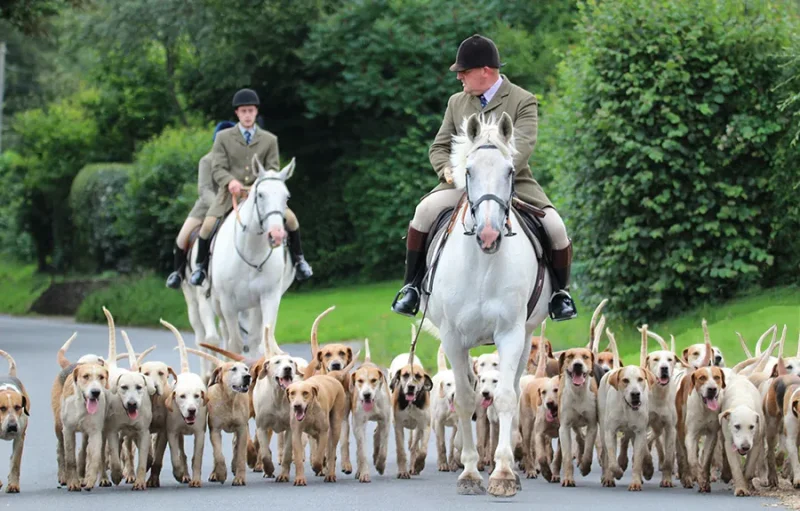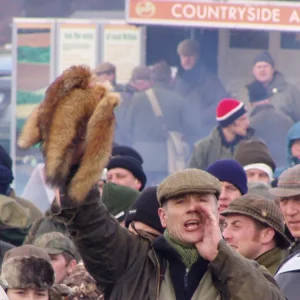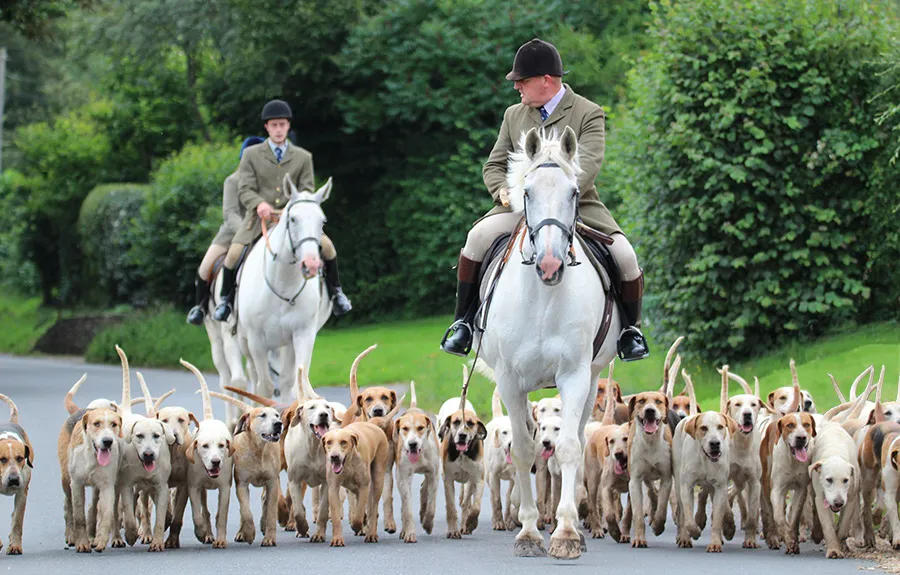A new series of occasional articles looking at the law relating to fox hunting
As a new season of fox hunting begins with the especially abhorrent and secretive practice of cub-hunting, a Solicitor friend of Wildlife Guardian looks at a series of legal topics relating to hunting. The first of these is hound exercise.

Even in the summer months when scents evaporate too quickly for hounds to give chase, the hunts break the law. They do so by the simple act of hound exercise. I do not use this as a euphemism for cub-hunting, but literally taking the hounds out for a walk. Whenever I explain this to anyone, their first reaction is one of puzzlement. How can it be illegal to take hounds out for a walk? The answer lies in part in the laziness of hunt staff. They cannot be bothered to load the hounds into the van and drive them to a field to exercise them. Instead they take them out of the kennels, on to the road and only then to some field or other – although sometimes they don’t even do that, preferring to stick entirely to roads. For example, a few years ago when checking for cub-hunting I regularly saw the kennel huntsman of the Hampshire Hunt on his bike leading the hounds around the village of Ropley where their kennels are located.
Then there is section 27 of the Road Traffic Act 19881. Sub-section (1) reads as follows:
A person who causes or permits a dog to be on a designated road without the dog being held on a lead is guilty of an offence.
A designated road is simply a public road, so there you have it: it is an offence to allow a dog on a road without a lead.
But then the knowledgeable would point out that hunts have a special exemption allowing their hounds to use roads. True. When the RTA was passed, the hunters’ friends in Parliament succeeded in adding a clause which found its way into sub-section 4 of section 27 which reads as follows:
subsection (1) above does not apply to dogs proved … to have been at the material time in use under proper control for sporting purposes.
Later in this series of articles we will look at the words “under proper control”, but for present purposes the important wording is “at the material time in use … for sporting purposes”. This phrase is not defined, but plainly no offence is committed during a legal hunt when the hounds are making their way from one field to another via a road. But the exemption is not a blanket one. The statute does not say that hunts may take their hounds on roads whenever they wish. Rather it is a limited exception, applicable only when the hounds are being used “at the material time” for “sporting purposes”. In no meaningful sense are hounds out for their daily walkies, being used for sporting purposes. The purpose of taking the hounds out on the road is to exercise them by giving them a walk. Dog walking is not a sport. Were it otherwise, any owner of a dog which was capable of being used for a sport (such as a racing greyhound) could invoke the defence by saying they were taking their dog out for a walk.
So there it is. If a hunt exercises its hounds by taking them on a public road, an offence is committed by the person in charge of the hounds. The offence may be reported to the police and the police should act. It would not be unreasonable for the police merely to offer “words of advice” the first time. Thereafter, the police response should escalate, and ultimately, the hunt should be prosecuted if it continues to break the law. Has it ever happened? Of course not. When the Hampshire Hunt was reported for its repeated exercising of hounds on the roads of Ropley, Hampshire police refused to do anything. In part, however, the problem is because of a failure to report the offence, doubtless because few appreciate that one is being committed. So let us hope that this changes, and the police will act. I hold out no hope in the case of the Hampshire police, but let us hope that less useless forces will take action. Only by reporting will we see.
Finally, however, one might reasonably ask: what good would this do? One response which is not really an answer, is that hunters should obey the law. But in terms of what good it would do, obeying this law would cause hunts inconvenience in the shape of having to load up the hound van and drive it in a road-legal vehicle somewhere where the landowner has consented, just to exercise them; and anything which causes a hunt inconvenience will make a small contribution toward its ultimate demise. So next time you see hound exercise on a public highway, please report it online via 101.
1 https://www.legislation.gov.uk/ukpga/1988/52/section/27
About the Author

James SF Hart provides legal analysis and commentary on issues related to fox hunting law and advocates for reform of the Hunting Act 2004.
Follow on social media



